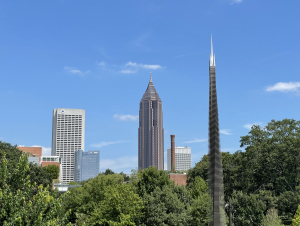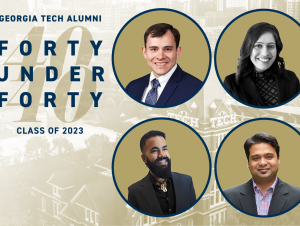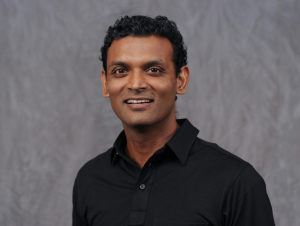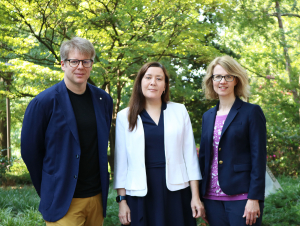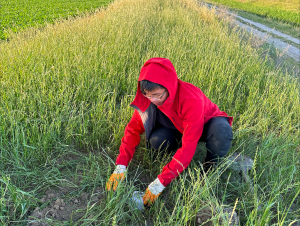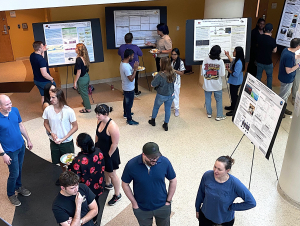To request a media interview, please reach out to experts using the faculty directories for each of our six schools, or contact Jess Hunt-Ralston, College of Sciences communications director. A list of faculty experts is also available to journalists upon request.
Latest News
Georgia Tech’s economic impact surged to $4.5 billion in fiscal year 2022, leading the way among University System of Georgia member institutions.
Four College of Sciences alumni from three schools were recently selected as members of the Alumni Association’s 2023 class of 40 under 40. From making groundbreaking discoveries on Mars to revolutionizing healthcare, meet the Sciences alums working to change the world.
Santosh Vempala has been named a 2023 Simons Investigator in theoretical computer science. The award supports “outstanding theoretical scientists in their most productive years, when they are establishing creative new research directions, providing leadership to the field, and effectively mentoring junior scientists.”
Georgia Tech researchers were recently awarded $11.6 million from the U.S. Department of Energy to establish the Transuranic Chemistry Center of Excellence. Directed by School of Chemistry and Biochemistry Associate Professor Henry “Pete” La Pierre, the Center will serve to push Georgia Tech to the forefront of nuclear science and engineering — and push the boundaries of our understanding of chemical bonding.
In February, a major earthquake event devastated the south-central region of the Turkey and northwestern Syria. Thanks to an NSF RAPID grant, a research team led by Georgia Tech has since placed over 100 small sensors in the East Anatolian fault region to help detect and understand future tectonic activity.
Visiting students from around the U.S. attended NSF REU programs at all six College schools this summer, researching in Georgia Tech’s state-of-the-art labs, learning from student and faculty mentors, and expanding their networks.

